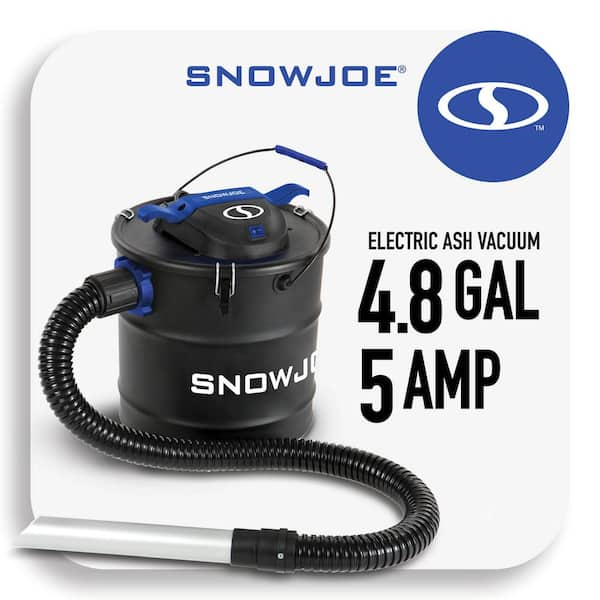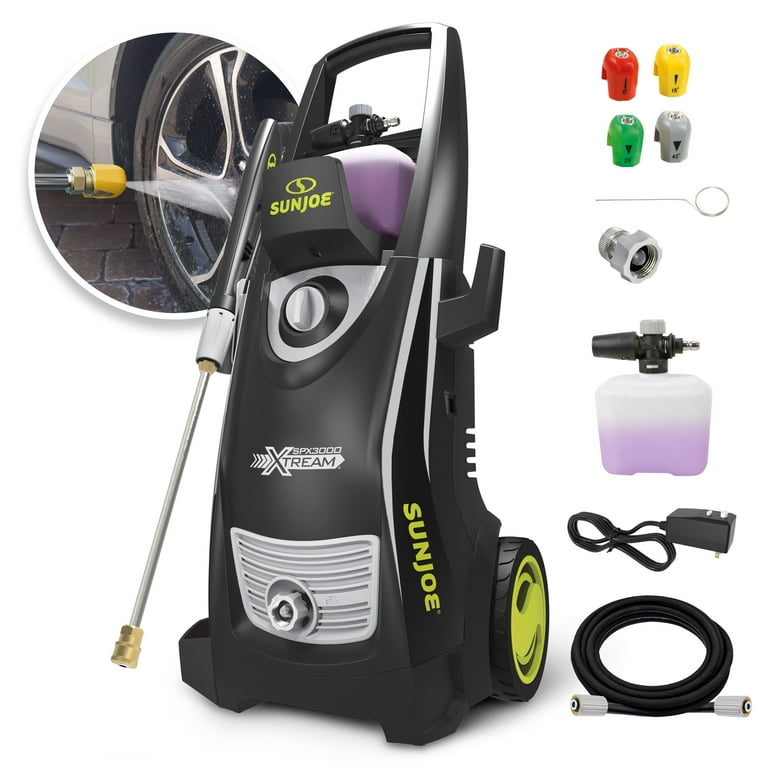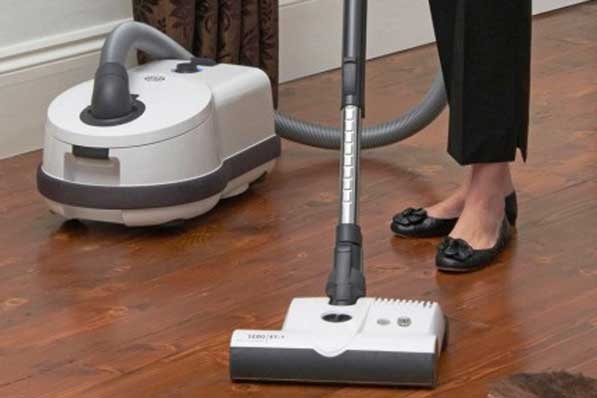Understanding vacuum cleaner amp ratings can seem confusing at first. But knowing what these ratings mean can help you make a better purchase decision.
Vacuum cleaner amp ratings measure the electrical current the vacuum uses. Many people think higher amps mean better performance. This isn’t always true. Amp ratings tell you how much power the motor consumes. They don’t reflect suction power or efficiency.
Understanding these ratings can help you choose the right vacuum for your needs. In this post, we’ll explain what amp ratings mean and how they affect your vacuum’s performance. By the end, you’ll know how to read these ratings and make an informed choice. Ready to dive in? Let’s get started!
Introduction To Vacuum Cleaner Amp Ratings
Understanding vacuum cleaner amp ratings can be confusing. Many people see the amp rating and wonder what it means. This section will help you understand amp ratings. Knowing this can help you choose the right vacuum cleaner.
Importance Of Amp Ratings
Amp ratings show how much electrical current a vacuum uses. This number is important because it tells you about the vacuum’s power. Higher amp ratings usually mean more power. This can lead to better cleaning performance. But, it’s not the only factor to consider.
Manufacturers often use amp ratings for marketing. They know people think higher numbers mean better products. But, be careful. A high amp rating does not always mean a better vacuum. It only shows how much electricity the vacuum uses.
How Amp Ratings Affect Performance
The amp rating affects the motor’s power. More amps mean more power for the vacuum’s motor. This can help the vacuum pick up more dirt and debris. But, other factors also affect performance. The design, suction power, and filtration system are important too.
Don’t rely only on the amp rating. Consider other features like the vacuum’s design and build quality. Check for reviews and ratings from other users. This will give you a better idea of the vacuum’s overall performance.
Remember, the amp rating is just one part of the picture. Understanding it can help, but always look at the whole product. This way, you can choose the best vacuum cleaner for your needs.

Credit: www.homedepot.com
What Are Amps?
Understanding vacuum cleaner amp ratings starts with knowing what amps are. Amps, or amperes, measure the flow of electric current. This measurement is crucial in determining the power and efficiency of electrical appliances. For vacuum cleaners, amp ratings give an idea of their power usage. But what exactly are amps?
Definition Of Amps
Amps are units that measure electrical current. Think of it like water flowing through a pipe. The current is the water, and the pipe is the wire. The more amps, the stronger the current. This strength impacts how well an appliance works. In simple terms, more amps usually mean more power.
Role Of Amps In Electrical Appliances
Amps play a vital role in how electrical appliances operate. They determine the amount of electricity flowing to the device. For vacuum cleaners, higher amp ratings often mean better suction power. But higher amps also mean more energy consumption. So, understanding amp ratings helps in choosing the right vacuum cleaner for your needs.
For example, a vacuum cleaner with a higher amp rating can clean more effectively. This is because it has more power to generate stronger suction. But, it may also lead to higher electricity bills. So, balance is key.
Vacuum Cleaner Amp Ratings Explained
Vacuum cleaner amp ratings can often be confusing. Understanding these ratings helps in choosing the right vacuum cleaner. Amp ratings indicate the electrical power a vacuum uses. They help in comparing different models.
Typical Amp Ratings
Most household vacuum cleaners have amp ratings between 6 and 12. This range is common for upright and canister models. A higher amp rating means the vacuum uses more power.
| Type of Vacuum | Typical Amp Rating |
|---|---|
| Upright | 7 – 12 amps |
| Canister | 6 – 12 amps |
| Handheld | 4 – 8 amps |
Comparison Of Different Ratings
Comparing vacuum cleaners based on amp ratings can be helpful. Higher amps indicate more suction power, but not always better cleaning.
- 6-8 amps: Suitable for light cleaning tasks
- 8-10 amps: Good for regular household cleaning
- 10-12 amps: Ideal for heavy-duty cleaning
It’s important to remember that amp ratings are just one factor. Consider other features like filtration, design, and attachments.

Credit: www.bestvacuum.com
Impact Of Amp Ratings On Cleaning Power
Understanding vacuum cleaner amp ratings is essential. This knowledge can influence your choice of a vacuum cleaner. One crucial aspect is the impact of amp ratings on cleaning power. This section delves into how different amp ratings affect the cleaning efficiency of vacuum cleaners.
Higher Amps Vs. Lower Amps
Vacuum cleaners with higher amp ratings generally have more powerful motors. This increased power can lead to better suction and more effective cleaning. For instance, a vacuum with 12 amps can pick up dirt and debris more efficiently than one with 6 amps.
However, a higher amp rating does not always mean better performance. Other factors like design, filtration system, and brush quality also play a significant role. A well-designed vacuum with lower amps can outperform a poorly designed one with higher amps.
Optimal Amp Rating For Home Use
The optimal amp rating for home use depends on your needs. For most households, a vacuum cleaner with 8 to 12 amps is sufficient. This range provides a good balance between cleaning power and energy efficiency.
Consider your home size and floor type. Larger homes with carpets may need vacuums with higher amps. Smaller homes or those with hard floors can use lower amp vacuums effectively. Here is a simple guide:
| Home Size | Floor Type | Recommended Amp Rating |
|---|---|---|
| Small | Hard Floors | 6-8 Amps |
| Medium | Mixed Floors | 8-10 Amps |
| Large | Carpets | 10-12 Amps |
By considering these factors, you can select a vacuum cleaner with the right amp rating for your needs.
Choosing The Right Amp Rating
Choosing the right amp rating for your vacuum cleaner is essential. It ensures efficient cleaning and proper functioning. Different cleaning tasks require different power levels. Understanding these ratings helps you make an informed decision.
Factors To Consider
Several factors impact the choice of amp rating for a vacuum cleaner:
- Type of Flooring: Carpets require more power than hardwood floors.
- Size of Area: Larger areas need higher amp ratings for thorough cleaning.
- Frequency of Use: Frequent use demands a durable and powerful vacuum.
- Attachments: Extra tools may need additional power.
Matching Amp Ratings With Cleaning Needs
Match the amp rating with your specific cleaning needs for optimal performance:
| Cleaning Need | Recommended Amp Rating |
|---|---|
| Light Cleaning (Dust and Small Debris) | 6-8 Amps |
| Regular Household Cleaning | 8-12 Amps |
| Heavy-Duty Cleaning (Pet Hair, Deep Carpet) | 12-15 Amps |
Use higher amp ratings for challenging tasks. For example, removing pet hair from carpets. For everyday cleaning, a moderate amp rating suffices. Knowing your cleaning requirements helps in selecting the correct amp rating. This ensures efficient and effective cleaning.
Common Misconceptions
Understanding vacuum cleaner amp ratings is essential for making an informed purchase. Many people misunderstand what amp ratings mean for vacuum cleaners. Let’s clear up some of these common misconceptions.
Amps Vs. Suction Power
Many believe higher amp ratings mean better suction power. This is not true. Amps measure the electrical current the motor uses. They do not directly indicate suction power.
Suction power depends on motor efficiency, design, and airflow. A vacuum with lower amps can have better suction if it is designed well.
Using amp ratings alone to judge vacuum performance is a mistake. Look at other factors like air watts and the vacuum’s design.
Amp Ratings And Energy Consumption
Another misconception is that higher amp ratings mean higher energy consumption. This is not always the case.
Amp ratings show the current drawn by the motor. Energy consumption depends on voltage and how long the vacuum runs.
For example, a vacuum with a 10 amp rating and 120 volts uses 1200 watts. A higher amp rating does not always mean higher energy use.
Check the vacuum’s wattage and efficiency to understand its energy consumption better.
Safety Considerations
Understanding vacuum cleaner amp ratings is crucial for ensuring safety in your home. The amp rating tells you how much electrical current the vacuum uses. Higher amp ratings mean more power, but they also mean more strain on your electrical system. This section will cover key safety considerations.
Avoiding Electrical Overloads
Electrical overloads can cause significant damage to your home. Knowing how to avoid them is essential.
- Always check the amp rating on your vacuum cleaner.
- Ensure your electrical outlets can handle the load. Most household circuits are designed for 15-20 amps.
- Do not run multiple high-amp appliances on the same circuit.
- Use extension cords with caution. They must match the vacuum’s amp rating.
- Watch for signs of overload. Flickering lights or a tripped breaker can indicate a problem.
Proper Maintenance Tips
Regular maintenance can prevent many safety issues. Here are some tips:
- Clean or replace filters as recommended. Clogged filters can increase the amp draw.
- Check the power cord for damage. Frayed cords can lead to electrical shorts.
- Inspect the vacuum for blockages. Obstructions can make the motor work harder, increasing amp usage.
- Lubricate moving parts if applicable. This can reduce the strain on the motor.
- Store the vacuum in a dry place. Moisture can damage electrical components.
By following these tips, you can ensure your vacuum cleaner operates safely and efficiently.

Credit: www.walmart.com
Frequently Asked Questions
What Does Vacuum Cleaner Amp Rating Mean?
The amp rating indicates the electrical current used by the vacuum motor. Higher amps usually signify a more powerful motor, leading to better suction performance.
How Many Amps Should A Good Vacuum Have?
A good vacuum cleaner typically has an amp rating between 7 to 12 amps. This range balances power and energy efficiency for effective cleaning.
Does Higher Amp Rating Mean Better Cleaning?
Not necessarily. A higher amp rating means more power, but other factors like design and airflow also influence cleaning performance.
Are Vacuums With Lower Amps Less Effective?
Not always. Vacuums with lower amps can still be effective if they have efficient design and strong suction technology.
Conclusion
Understanding vacuum cleaner amp ratings helps you make better choices. Higher amps mean more power. But more power does not always mean better cleaning. Focus on overall performance, not just amps. Consider other factors like filter quality and design. A balanced approach ensures you get the best vacuum for your needs.
Remember, knowledge is power. Now, you can confidently choose the right vacuum cleaner. Happy cleaning!

